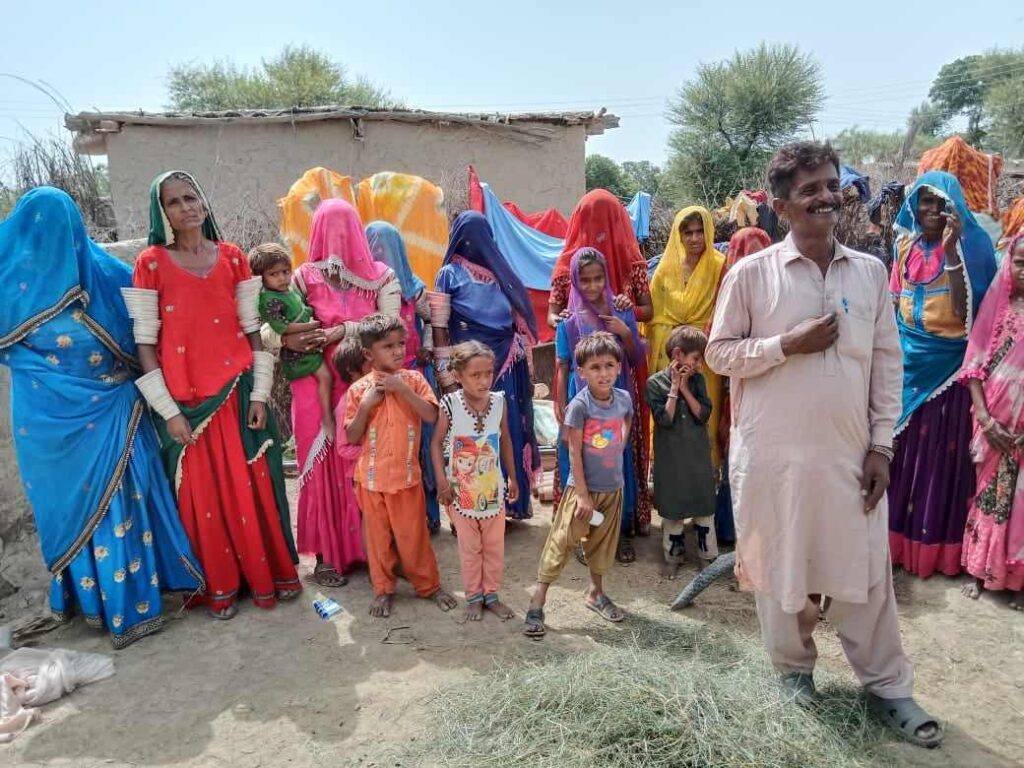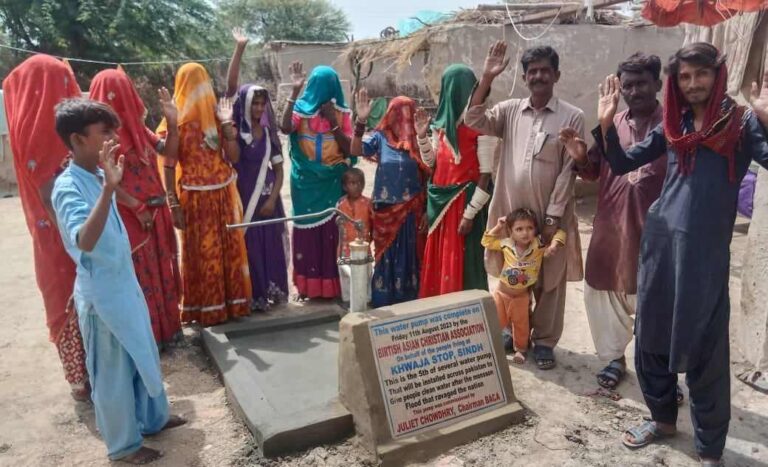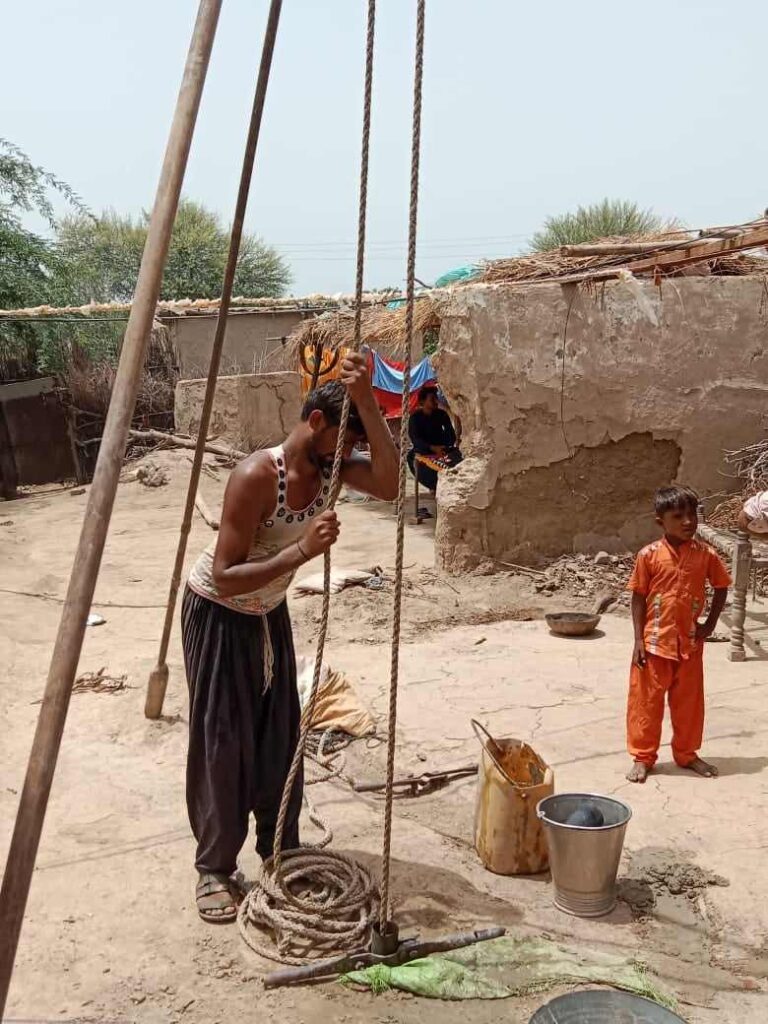
The initiative was sparked by the efforts of Evangelist Prabhu Das, a dedicated volunteer who had witnessed BACA’s previous assistance during the massive rainfalls the previous year. Recognizing the impact of their support, Prabhu Das approached BACA with a request for aid to the impoverished Christian community at Khwaja Stop.
Living in temporary mud brick houses on land provided by Muslim landlords, the poor Christians faced significant challenges. The meager salaries earned from strenuous farm work were barely sufficient for the survival of their large families, leaving no room for savings to weather difficult times.
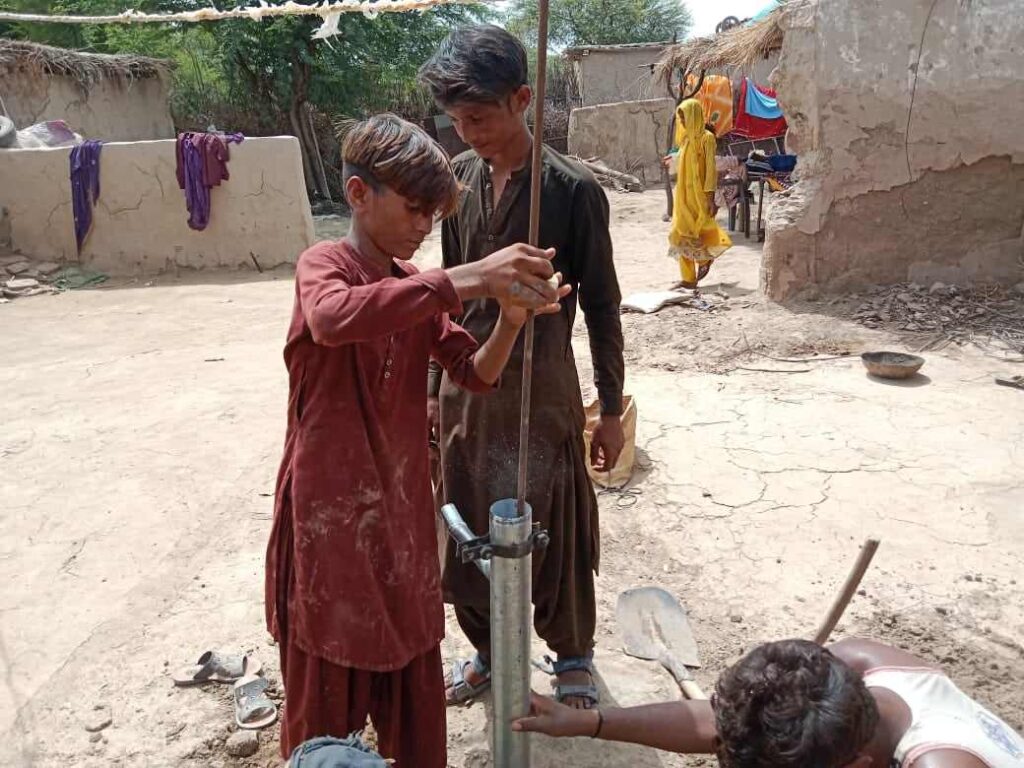
Hero Masih, one of the individuals affected by the rainfall, shared his disappointment as the destruction of crops dashed his hopes for a fruitful harvest. He had anticipated using the expected harvest to repay a loan borrowed the previous year to feed his family after the rainfalls.
Apart from the economic setbacks, the community also grappled with the scarcity of clean water. Salomi, a Christian resident of Khwaja Stop, highlighted the challenges they faced in obtaining water. She explained, “We have to travel across a long distance from our house to fetch water from a garden. We feel unsafe while traveling to the garden due to the presence of dogs and other wild animals.”
In response to the community’s request, BACA took swift action to address these challenges. The organization installed a water pump at Khwaja Stop on 11th October, ensuring a more accessible and safer water source for the residents. This intervention not only alleviated the community’s water scarcity but also addressed safety concerns related to fetching water from distant and potentially dangerous locations.
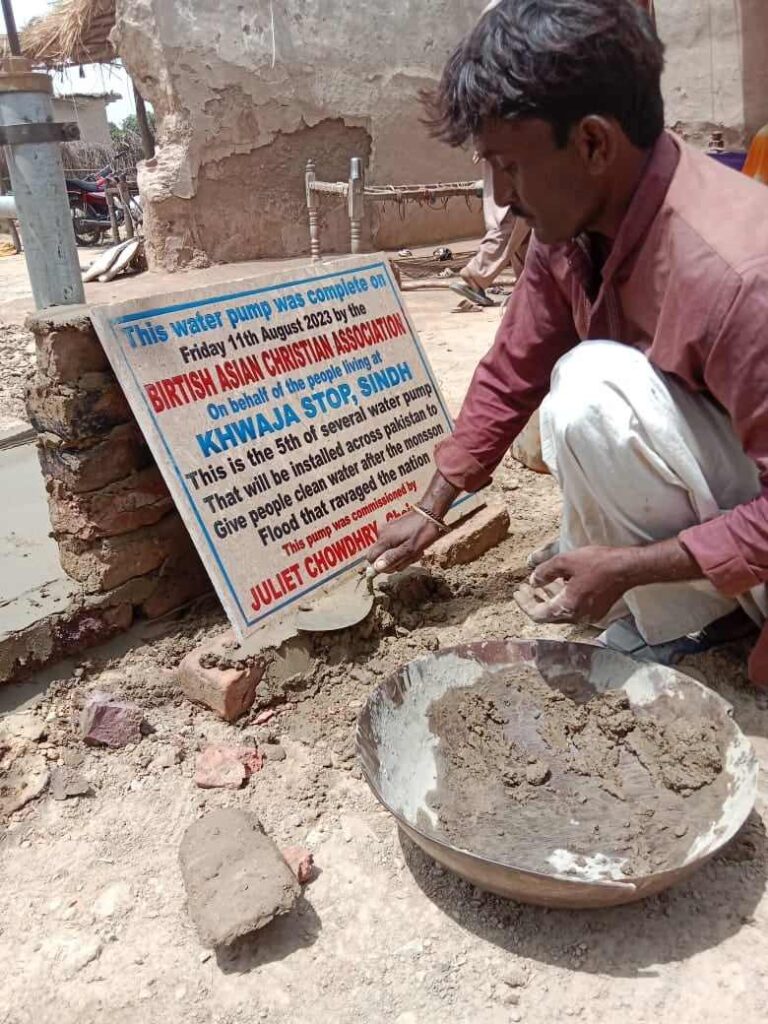
Prabhu Das emphasized the importance of this initiative, stating, “The garden was not a safe place for our women to fetch water from. It was, in fact, a hiding place for groups of addicts who stay there to drink alcohol.” With the installation of the water pump, the women in the community now feel safer at home, and Salomi expressed her gratitude, saying, “I am thankful to BACA for the hand pump, which has resolved a major issue the community faced.”
Fetching water used to be a daily task fraught with risks for the residents of Khwaja Stop, who previously relied on water from a Muslim-owned field some 2km away. Evangelist Prabhu Das shed light on the challenges they faced, noting, “The water from the water-pump in the garden was cleaner than the water from the river or canal. But even then, it caused dysentery and stomach problems for children and older members of the community. It seems the very old pump has become contaminated”
The consequences of using unsafe water prompted the community to employ various home remedies to combat health issues. Despite their awareness of the importance of dental hygiene, Prabhu Dass shared that the community utilized ash from the woods they used for cooking when toothpaste and brushes were financially out of reach.
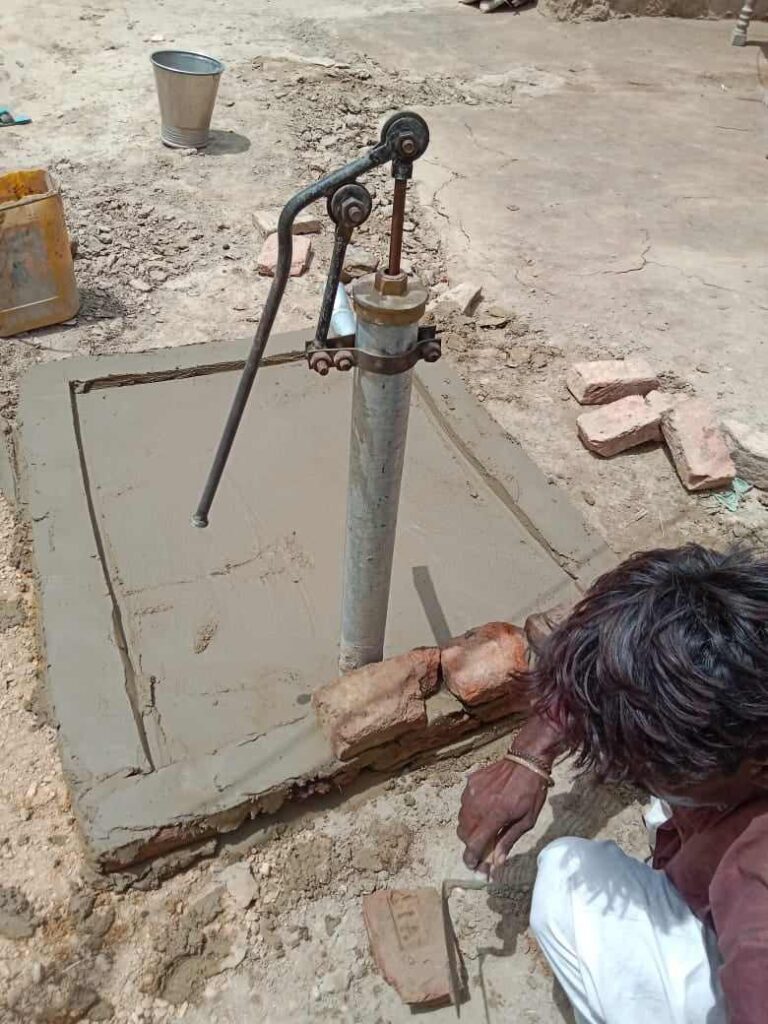
The struggle for basic hygiene extended to bathing, where economic constraints limited the community’s access to bathing soap. Instead, they turned to washing soap for their daily bathing needs.
The woes did not end with health concerns alone. The daily task of carrying heavy loads from the distant water source proved to be a perilous endeavor, leading to a distressing number of injuries. The precarious long route taken to fetch water became a breeding ground for accidents, causing individuals to endure back injuries, breaks, and significant bruises resulting from unfortunate trips and falls.
Juliet Chowdhry, Trustee for British Asian Christian Association, said:
“A transformative solution to these challenges has manifested through the installation of the water pump at the house of Evangelist Prabhu Das.
“This not only eliminated the need to fetch water from distant and potentially unsafe locations but also provided a cleaner and safer water source for the community.
“The positive impact of the water pump extends beyond convenience—it directly addresses health concerns and reduces the risk of waterborne diseases.”
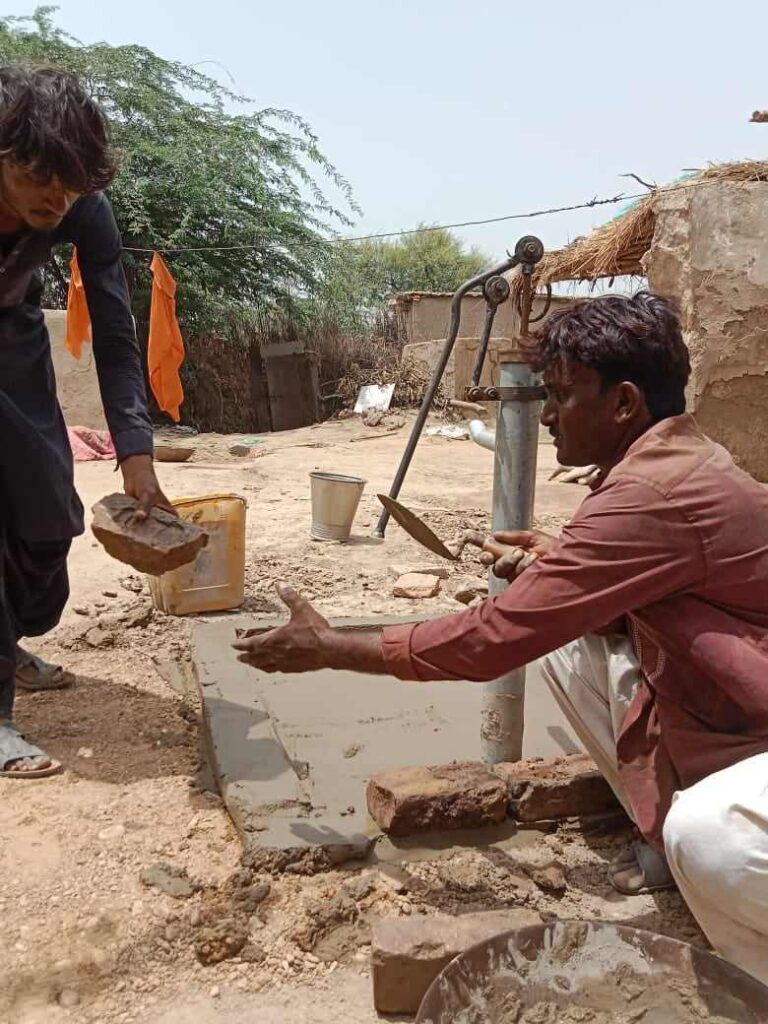
The Khwaja Stop Clean Water Project is not merely about improving access to water; it is a catalyst for better health, hygiene, and safety within the community. Through this initiative, the residents can now look forward to a future free from the health issues caused by unsafe water, a significant step towards breaking the cycle of poverty and improving the overall well-being of the community.
BACA’s commitment to enhancing the well-being of the Khwaja Stop community extends beyond the installation of the water pump. Our ongoing efforts include plans to construct two cubicles for showering and toilets at the same site. This initiative aims to restore dignity to a community that has been forced to bathe in a local river and use open fields for relieving themselves—a situation that tragically resulted in the rape of several unsuspecting Christian women by local Muslims.
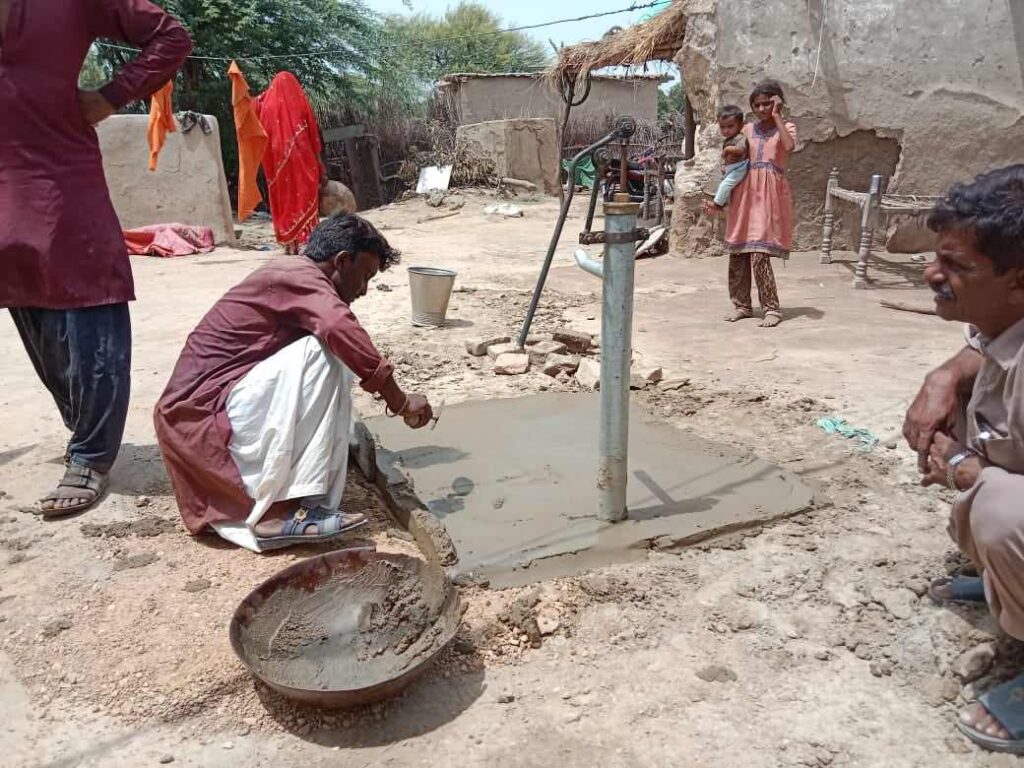
To address these pressing issues, we are determined to provide a safe and hygienic space for bathing and sanitation. The construction of the twin toilet and washroom building will not only offer a secure environment but also contribute to preventing further incidents of violence against women in the community.
In addition to the physical infrastructure, BACA is committed to promoting hygiene practices and improving overall health in the village. We plan to supply a year’s worth of soap and toothbrushes while conducting hygiene training for the local residents. These initiatives are designed to uplift the quality of life in Khwaja Stop, where the current life expectancy falls below the recorded 65.2 years for the Sindh region(click here).
A brief online search about Tando Allahyar District indicates that it ranks among the most challenging regions in Pakistan in terms of nutrition and healthcare. The district was notably featured in UN report on the Pakistan floods (click here). However, it is disheartening to note that the Christian community in this area has not received any assistance from any agency, despite the report.
To bring this comprehensive project to fruition, we estimate a total cost of £1000 for the construction of the twin toilet and washroom building, £750 for the installation of a solar panel and battery to power lighting, and £250 for toothbrushes, toothpaste, and soaps. Your support is crucial in making a meaningful impact on the lives of the Khwaja Stop community.
Please consider contributing to our cause by donating towards the project [here]. With your generosity, we can collectively create a safer, more dignified, and healthier environment for the resilient individuals of Khwaja Stop.
Please note that the image states that the pump was installed on 11th August 2023 but it was actually completed on October 12th, due to delayed funds and weather conditions.
